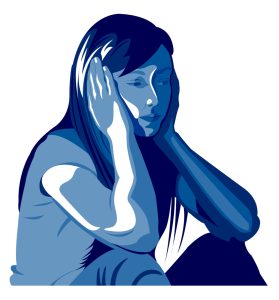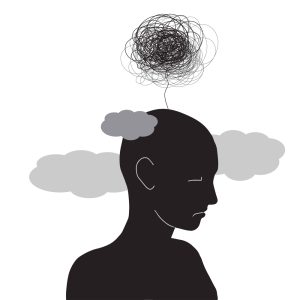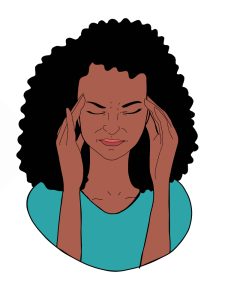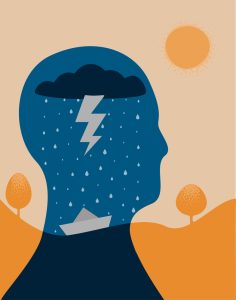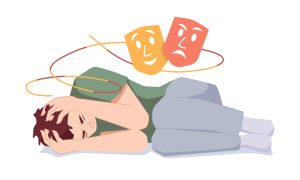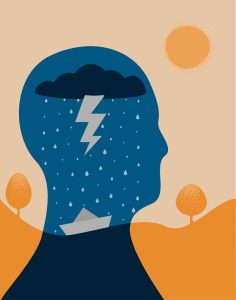Christ stated that the Church would last till the end of time and that the gates of Hell would not prevail against it. After the Apostles and early Disciples left their legacy and imprint upon Christianity with their own writings, most found in Scripture, and their own lives, Christianity struggled under persecution but later emerged as the official religion of the Roman Empire. Various Councils were called that settled heretical disputes and Church Fathers answered the need of the people with concise writings and guidance. These writings still are a great treasure within the deposit of faith and while not inspired like Scripture carry heavy weight and truth in the faith.

Christian Counselors have sources upon sources of spiritual writing on dogma, biblical exegesis , moral instruction and spiritual guidance from the Church Fathers. The Church Fathers lived in the post apostolic periods in which Christianity suffered persecution in the 2nd Century , blossomed in the 4th Century and continued to grow through the early ecumenical councils of the Church. Another term for the Early Church Fathers are the Apostolic Fathers. These early bishops and leaders of Christianity were either young men at the time of the Apostles, or indirect students of the Apostles successors. Many of these saints faced persecution at the hand of Pagan Rome. The tradition of great Church Fathers continued at Nicaea where the Nicene Creed was formulated as a basis for the Christian faith. The the Nicaean Fathers modified the Apostle Creed to further reinforce the orthodox teaching of Jesus’ divinity against the Arian Heresy. From the 4th Century onward, great Church Fathers would emerge along side powerful early ecumenical councils that would form the identity of the Christian Church and preserve it from a multitude of errors ranging from Nestorianism to Monophysitism and other critical issues that plagued the early church during the ecumenical age.
These writings for the defense and explanation of the faith are a rich resource for priests, pastors, spiritual directors, pastoral caregivers and Christian counselors. It is hence important to have some idea how to find these resources and know who these men were in relation to Church doctrine and Church history. The study of the Church Fathers is referred to as Patristics and involves a mixture of history and theology that show the growth of the faith and its articulation of basic dogmas. The seeds laid by the apostles were merely the beginning of the faith and the Church Father’s mission was to preserve but to also help grow the faith. This involved reactions to their current times, both social and theological. Many of the writings clarify teachings of the faith and defend it from heretical views regarding the nature of Jesus Christ and the titles of Mary, His mother. Through their defenses and the coinciding councils, the faith grew and gave greater explanations about the dogmas that were handed down by the apostles.
The 8 Pillars and 2 Lungs of the Church
A person who is a Church Father must meet a few requirements. They must have lived within the first 8 centuries, wrote orthodox writings, possessed sanctity and be approved by the Church.
From the extensive period of the 2nd Century to the 5th Century, 8 Church Fathers were given notable recognition by both the Catholic and Orthodox Church and are seen as the post apostolic pillars of the faith. Their standing and defense of the faith leave them with the titles of Doctors of the Church and of course great defenders of the faith. In the West, there is St Gregory the Great, St Augustine of Hippo, St Ambrose and St Jerome. In the East, there is St Athanasius of Alexandria, St Gregory of Nazianzus, St Basil of Caesarea and St John Chrysostom. All of these saints and Church Fathers played large roles in the early centuries in defining Christian doctrine against heresy and leading the Church in times of trouble and danger.
They clearly illustrate the 2 lungs of the Church, both Western and Eastern, and their importance transcends not only their geographical center but also the entirety of the Christian faith, both then and now. For instance, Gregory the Great, was not only a Pontiff of the then unified Church, but also a defender of the city of Rome against barbarian invasions. St Augustine, remains to this day as one of the greatest Christian writers revered in East and West, and Catholic and Protestant circles. His work, the City of God, is a Christian classic and his defense against the heretic Pelagius helped maintain orthodoxy within Christianity regarding grace. St Athanasius stands as fierce defender of Christ against Arianism and finally, St John Chrysostom is responsible for the beauty of the Eastern Liturgy. St Jerome was responsible for the first translation of Scripture into the Latin language.
The Latin Fathers
In the West, including Augustine, Gregory, Ambrose and Jerome are the Latin Fathers who wrote in Latin. Notable names include St Clement of Rome, St. Ignatius of Antioch, Tertullian, Cyprian of Carthage, and St Polycarp. Both Ignatius and Polycarp are said to be disciples of St John the Apostle. The Epistle of St Clement is the earliest epistle of any Church Father (96 A.D).
The Greek Fathers

In the East, including Gregory of Nazianzus, Basil, Athanasius, and Chrysostom are the Fathers who wrote in Greek. St Justin the Martyr, St Irenaeus of Lyons, St. Clement of Alexandria, St Cyril of Alexandria, and Origen.
Utilizing these Sources in Christian Counseling
First of all, the lists above are only a sample of the many Fathers. It is imperative that Christians not neglect these rich and powerful resources for their own spiritual renewal but also for a better understanding of the Christian faith and its dogmas. Christian Counselors can utilize these sources easily by becoming acquainted with the numerous Fathers and their writings. There are numerous texts created which collects their most famous exerts as well as resources both online and in libraries where individuals can read the entire work itself. Of course, like Scripture, most of these are translated from Latin or Greek so it is important to find a reputable translation.

The wisdom of the Early Church Fathers may not be inspired as God’s Word but they carry heavy authority in dogma and teaching. They provide explanations about the faith and answer numerous questions as the faith grew and developed. Many heresies today are repeat versions of the ancient heresies. If one possesses a strong knowledge of the Church Fathers, one will recognize unorthodox doctrine and better be equipped to refute it.
Christian Counselors can also find wisdom in the writings of the Church Fathers and apply it to sessions and guidance of their spiritual children. St Augustine is a great example of a soul who lost his way but later found the grace of God and converted his immoral life style and became a great saint. St Athanasius illustrated perseverance to the truth, as he was multiple times chased from his See by heretics who denounced the divinity of Christ. These individuals were not only great writers and defenders of the faith but many of them were also very holy individuals who one can emulate in one’s own spiritual life.
All are called to discipleship and the Early Church Fathers are excellent examples of what it means to be a disciple after the time of the Apostles. They teach that all Christians are called to preserve the faith and defend it for their respective generation so that future souls may inherit the faith unsoiled and pure as it was handed down by the Apostles from Christ.
Please also review AIHCP’s Christian Counseling Certification and see if it matches your academic and professional goals. The program is online and independent study and open to qualified professionals seeking a four year certification
Additional Resources
“Church Fathers”. Wikipedia. Access here
“AN ENCOURAGEMENT TO READ AUGUSTINE’S BIG BOOK, THE CITY OF GOD”. David George Moore. December 4th, 2018. C.S Lewis Institute. Access here
“Who are the “Fathers of the Church” and why do they matter?”. Phillip Kosloski. February 2nd, 2018. Aleteia. Access here
“5 Books to Read by Church Fathers”. Gavin Ortlund. July 27th, 2020. Christian Living. Access here

